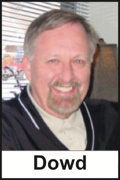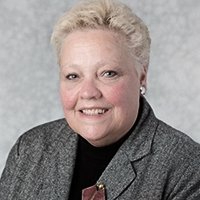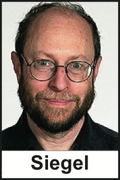Rascals case in brief
In the beginning, in 1989, more than 90 children at the Little Rascals Day Care Center in Edenton, North Carolina, accused a total of 20 adults with 429 instances of sexual abuse over a three-year period. It may have all begun with one parent’s complaint about punishment given her child.
Among the alleged perpetrators: the sheriff and mayor. But prosecutors would charge only Robin Byrum, Darlene Harris, Elizabeth “Betsy” Kelly, Robert “Bob” Kelly, Willard Scott Privott, Shelley Stone and Dawn Wilson – the Edenton 7.
Along with sodomy and beatings, allegations included a baby killed with a handgun, a child being hung upside down from a tree and being set on fire and countless other fantastic incidents involving spaceships, hot air balloons, pirate ships and trained sharks.
By the time prosecutors dropped the last charges in 1997, Little Rascals had become North Carolina’s longest and most costly criminal trial. Prosecutors kept defendants jailed in hopes at least one would turn against their supposed co-conspirators. Remarkably, none did. Another shameful record: Five defendants had to wait longer to face their accusers in court than anyone else in North Carolina history.
Between 1991 and 1997, Ofra Bikel produced three extraordinary episodes on the Little Rascals case for the PBS series “Frontline.” Although “Innocence Lost” did not deter prosecutors, it exposed their tactics and fostered nationwide skepticism and dismay.
With each passing year, the absurdity of the Little Rascals charges has become more obvious. But no admission of error has ever come from prosecutors, police, interviewers or parents. This site is devoted to the issues raised by this case.
On Facebook
Click for earlier Facebook posts archived on this site
Click to go to
Today’s random selection from the Little Rascals Day Care archives….
Click for earlier Facebook posts archived on this site
Click to go to
Today’s random selection from the Little Rascals Day Care archives….
‘Will Edenton be able to heal from this?’
 Aug. 7, 2013
Aug. 7, 2013
“After (the first episode of “Innocence Lost” aired in 1991), letters and phone calls poured into the mayor’s office.
“ ‘Dear Mayor: Thank God I don’t live in Edenton. It’s full of witches…..’
“ ‘Dear Mayor: I suppose since lynching Negroes is verboten, the next best thing is for Southerners to cannibalize each other….’
“John Dowd, Edenton’s mayor at the time, is trying to correct some of the damage done to the town’s reputation….
“Many reporters have wanted to know: ‘Will Edenton be able to heal from this?’ The question is a little too touchy-feely for some residents, too intimate and much too insincere. Dowd replies, ‘Hell, we’ve recovered from the Civil War, from World War II.’ Then, dryly: ‘Yeah, I think we’ll recover from this.’ ”
– From “Little Town of Horrors” by Kathy Dobie in McCall’s (June 1992)
The Civil War, World War II and the Little Rascals Day Care case? The mayor’s resolve was apparent, if not his logic – but that was true for the whole case, wasn’t it?
Expert on day-care panic adds papers to Duke Law archive

DeYoung
Jan. 11, 2019
The Little Rascals Day Care Case archive at Duke Law School is about to get some impressive company. Mary deYoung, perhaps the most prolific researcher and chronicler of the “satanic ritual abuse” era, has agreed to place her own voluminous papers at Duke.
The author of both “The Day Care Ritual Abuse Moral Panic” (2004) and “The Ritual Abuse Controversy: An Annotated Bibliography” (2002), she is now emerita professor of sociology at Grand Valley State University. I asked Dr. deYoung to describe what she will be sending Duke’s way….
“My papers include 40 binders on American, European and Australasian cases. For many of the cases, I traveled to the site of the moral panic and collected local material that is not generally available by internet searches. I also have a file box of ephemera – symptom lists, descriptions of rituals, etc. – that were widely circulated at the endless training sessions that recruited so many social workers, police officers, medical and legal professionals to the idea that day care providers were engaged in a satanic conspiracy to abuse children. I have a few books, written by apologists, that probably should have been burned long ago, but they are testimony to the mainstreaming of these ridiculous ideas….
“The prospect that lessons can be learned from this dark decade is very satisfying…. While day care centers are no longer the site of the panic, the ridiculous assertions, unfounded complaints and pseudoscience that resulted in so many miscarriages of justice still occur in recovered memory and other types of cases around the Western world.”
![]()
Holocaust child-survivors needed no coaxing
 June 22, 2012
June 22, 2012
“Teen-age Holocaust victims had no trouble looking their abusers straight in the face and saying, ‘You did this to me, you monster.’ None of them, when they were younger, had to have any of their memories elicited. Nor were there embellishments of clowns throwing fire around the room.
“The author of a book on Holocaust survivors, ‘New Lives,’ had this to say: ‘I interviewed hundreds of Holocaust survivors. Would that they could forget anything. At age 4, at age 5 they remembered everything on the SS officers’ uniforms.’ ”
“The author is the Wall Street Journal’s Dorothy Rabinowitz, the first journalist to provide the same in-depth reportage about Fells Acres that ‘Frontline’ provided about Little Rascals and Abby Mann did for the McMartin trial in an HBO movie.”
– From “Abusing Justice, in the Name of Children” by Ed Siegel in the Boston Globe (September 8, 1995)
‘Is it not plain that people had frightened their children?’
Dec. 21, 2011
“Is it not plain that the people had frightened their children with so many tales that they could not sleep without dreaming of the devil, and then made the poor women of the town confess what the children said of them?”
– From Francis Hutchinson’s “Historical Essay Concerning Witchcraft” (1718) describing the 1669 “seduction” of 300 children in Mora, Sweden, which resulted in the burning of 85 “witnesses” (cited in “Victims of Memory” by Mark Pendergrast)











0 CommentsComment on Facebook